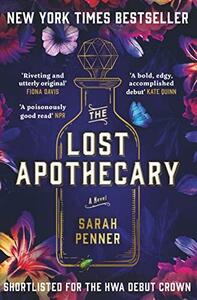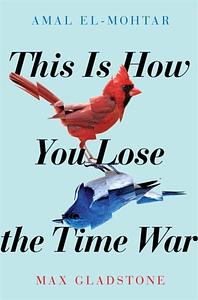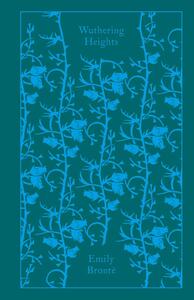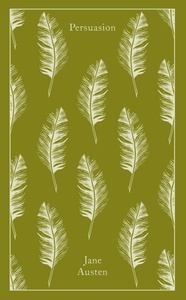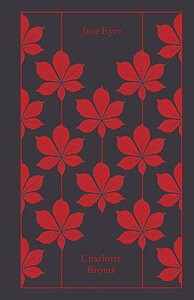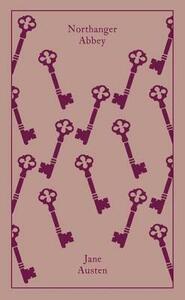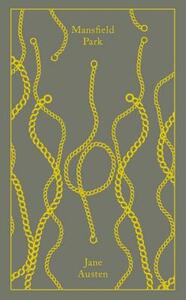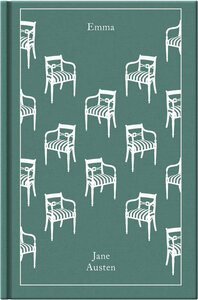Take a photo of a barcode or cover
theharbourreader's Reviews (73)
adventurous
emotional
mysterious
medium-paced
Plot or Character Driven:
A mix
Strong character development:
Yes
Loveable characters:
Yes
Diverse cast of characters:
No
Flaws of characters a main focus:
Yes
“Secrets have a way of simmering beneath the surface, like herbs steeping in a hidden brew.”
The Lost Apothecary is a compelling historical thriller that weaves together two timelines - the 18th-century story of Nella, a secret apothecary dispensing poisons to women seeking justice, and the present-day narrative of Caroline, a museum curator drawn into unraveling the apothecary’s mysteries.
Sarah Penner crafts a richly atmospheric tale filled with intriguing characters, shadowed alleys, and the scent of herbs and danger. The alternating perspectives provide a layered experience, as past and present entwine around themes of power, revenge, and female agency.
What I especially appreciated was the attention to detail in the historical setting, which brought 18th-century London vividly to life, along with the nuanced exploration of women’s choices in a patriarchal world. The mystery kept me turning pages, and several moments of suspense and revelation felt genuinely satisfying.
That said, there were times when the pacing faltered - particularly in the present-day storyline, which occasionally felt slower and less gripping than Nella’s arc. Some of the secondary characters could have been more fully developed, and a few plot threads felt a bit predictable.
Still, The Lost Apothecary is a solid, engaging read with a unique premise and a compelling emotional core. It’s a story that lingers, much like the scent of an herbal remedy - subtle but persistent.
Favourite quote:
"Even the smallest potion, brewed in secret, can change a life forever."
Rating: ⭐⭐⭐¾ (3.75 stars)
A well-crafted blend of historical intrigue and modern mystery - not perfect, but definitely worth the journey.
adventurous
hopeful
inspiring
reflective
medium-paced
“The map doesn’t show it, but the path is still there. You just have to keep walking.”
In Landlines, Raynor Winn returns once more to the trail — this time with the weight of years, illness, and uncertainty pressing even more deeply into her boots. And yet, from the very first page, there is that same fierce light: the quiet strength of a woman who knows what it means to risk everything for hope.
This third memoir sees Raynor and Moth set out again — not along the familiar coasts of the South West, but from Scotland’s rugged highlands down through wild terrain, ancient paths, and unfamiliar lands. Moth’s health has worsened. Their future is even more fragile. But the act of walking, of placing one foot in front of the other, remains a kind of sacred rhythm — one that roots them to the land and to each other.
Landlines is perhaps Winn’s most mature and expansive work. The writing feels richer, more meditative, with passages that ache with clarity and gratitude. There’s a new layer of reflection here — about aging, the body’s betrayals, the limits of love and endurance. But there’s also a sense of deepening connection: to the land, to the seasons, and to a slower kind of strength.
It’s not just a continuation of The Salt Path and The Wild Silence — it’s a culmination. And in some ways, it felt the most emotionally resonant of the three. There’s something profound about returning to the trail, knowing the risks, and choosing to walk anyway.
If I have a single quibble, it’s that the structure wanders now and then — the pace sometimes slows to a near halt in certain philosophical reflections. But that’s also part of its rhythm. This is a book that breathes, that pauses. That asks you to listen, not rush.
Favourite quote:
"The path was not an escape but a return — to the land, to ourselves, to something ancient and enduring."
Rating: ⭐⭐⭐⭐½ (4.5 stars)
Wistful, grounded, and quietly powerful — Landlines is a moving reflection on perseverance, place, and the quiet act of keeping going.
Wistful, grounded, and quietly powerful — Landlines is a moving reflection on perseverance, place, and the quiet act of keeping going.
adventurous
emotional
hopeful
inspiring
reflective
medium-paced
“We are not separate from nature. We are nature.”
Coming back to Raynor Winn’s voice in The Wild Silence feels like returning to a quiet cove you once walked, barefoot and full of questions. It carries the same raw honesty and reverence for the natural world as The Salt Path, but this time the journey is inward — a slower, softer reckoning with home, healing, and the life that follows after survival.
This book begins not on the coast, but in the quiet aftermath. Raynor and Moth, having completed their epic walk, are still searching — not just for somewhere to live, but for a sense of peace, belonging, and purpose. Much of The Wild Silence is about what it means to try and settle when you’ve been reshaped by loss, by wildness, by walking.
There’s a deep tenderness in the way Raynor writes about Moth — his illness, his fragility, his strength — and how their relationship bends and grows under new pressures. There’s also a lovely thread about reconnecting with her mother, and a remarkable project that sees Raynor and Moth return to the land in a different way — by rewilding a neglected farm. These moments are where the book shines.
The prose remains lyrical and sincere, though at times the structure felt a little meandering. Some sections felt slightly unfocused or repeated certain beats from The Salt Path, and I occasionally wished for a tighter arc or more clarity. But then again, life after trauma is messy and non-linear, and perhaps the book’s form reflects that truth.
It’s not quite as immediately striking as The Salt Path, but it’s a worthy continuation — quieter, but just as brave. If The Salt Path is about losing everything, The Wild Silence is about relearning how to live in the aftermath. About finding meaning not just in wild places, but in stillness, in roots, in tending the land with your own hands.
Favourite quote:
"The wild silence isn't empty. It’s full of memory, of heartbeat, of breath. It listens to you, if you listen back."
Rating: ⭐⭐⭐⭐ (4 stars)
A reflective and deeply felt continuation — The Wild Silence is a book about returning, restoring, and remembering what it means to live with the land.
adventurous
emotional
mysterious
medium-paced
Plot or Character Driven:
Character
Strong character development:
Yes
Loveable characters:
Yes
Diverse cast of characters:
Complicated
Flaws of characters a main focus:
Yes
“Words can wound and words can heal. I love you is the root of all battle.”
Reading This Is How You Lose the Time War feels a little like wandering into a half-remembered dream — vivid and poetic, but with moments where you’re not quite sure where you are or what it all means.
And yet, that’s part of what makes it so special.
This novella follows two rival agents, Red and Blue, as they leave secret letters for one another across the strands of time. What begins as taunting and tension becomes something intimate and tender, tangled with longing, wit, and eventual rebellion. Their love grows in stolen words, in coded messages, in the cracks between timelines.
The prose is lush, experimental, sometimes bordering on opaque — but often achingly beautiful. At its best, it reads like a love poem disguised as science fiction. I adored the sharpness of the voices, the elegance of the metaphors, and the sheer feeling it managed to evoke through language alone. There were lines I reread just to feel them again.
That said, it’s a book that asks for a lot of trust. There were moments I felt unmoored, wishing for a little more grounding in the plot or world-building. But perhaps that’s not the point — this isn’t a book about systems or settings; it’s about connection. About language as an act of love. About finding your person even in the unlikeliest timeline.
This isn’t quite a forever favourite, but it is unforgettable. A book I’d recommend to anyone who finds magic in words, who’s ever wanted to fall in love through letters, or who’s drawn to stories that feel like puzzles and poetry all at once.
Favourite quote:
“I want to meet you in every place I ever loved. Listen. Listen: Time is not a river. Time is a tree. We climb it together.”
Rating: ⭐⭐⭐¾ (3.75 stars)
A strange and stunning novella — not always easy, but utterly worthwhile.
A strange and stunning novella — not always easy, but utterly worthwhile.
dark
emotional
mysterious
sad
tense
slow-paced
Plot or Character Driven:
Character
Strong character development:
Complicated
Loveable characters:
No
Diverse cast of characters:
No
Flaws of characters a main focus:
Yes
emotional
hopeful
lighthearted
reflective
slow-paced
Plot or Character Driven:
Character
Strong character development:
Yes
Loveable characters:
Yes
Diverse cast of characters:
No
Flaws of characters a main focus:
Yes
dark
emotional
mysterious
reflective
slow-paced
Plot or Character Driven:
Character
Strong character development:
Yes
Loveable characters:
Complicated
Diverse cast of characters:
No
Flaws of characters a main focus:
Yes
funny
lighthearted
mysterious
reflective
medium-paced
Plot or Character Driven:
Character
Strong character development:
Yes
Loveable characters:
Yes
Diverse cast of characters:
No
Flaws of characters a main focus:
Yes
emotional
funny
lighthearted
reflective
slow-paced
Plot or Character Driven:
Character
Strong character development:
Yes
Loveable characters:
Complicated
Diverse cast of characters:
No
Flaws of characters a main focus:
Yes
emotional
funny
lighthearted
relaxing
slow-paced
Plot or Character Driven:
Character
Strong character development:
Yes
Loveable characters:
Yes
Diverse cast of characters:
No
Flaws of characters a main focus:
Yes
